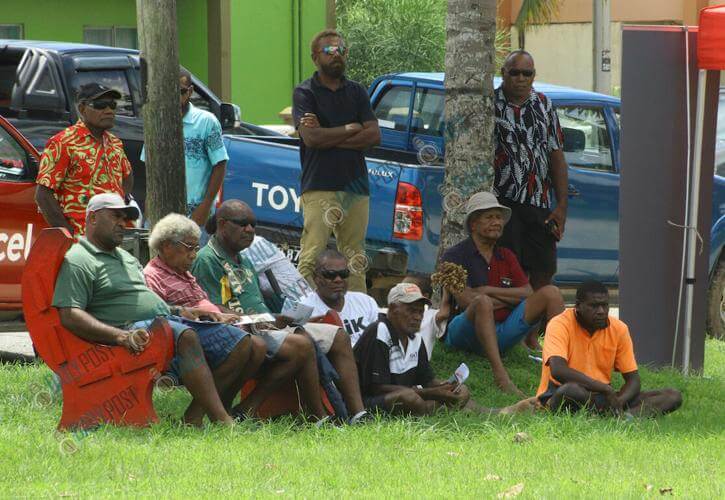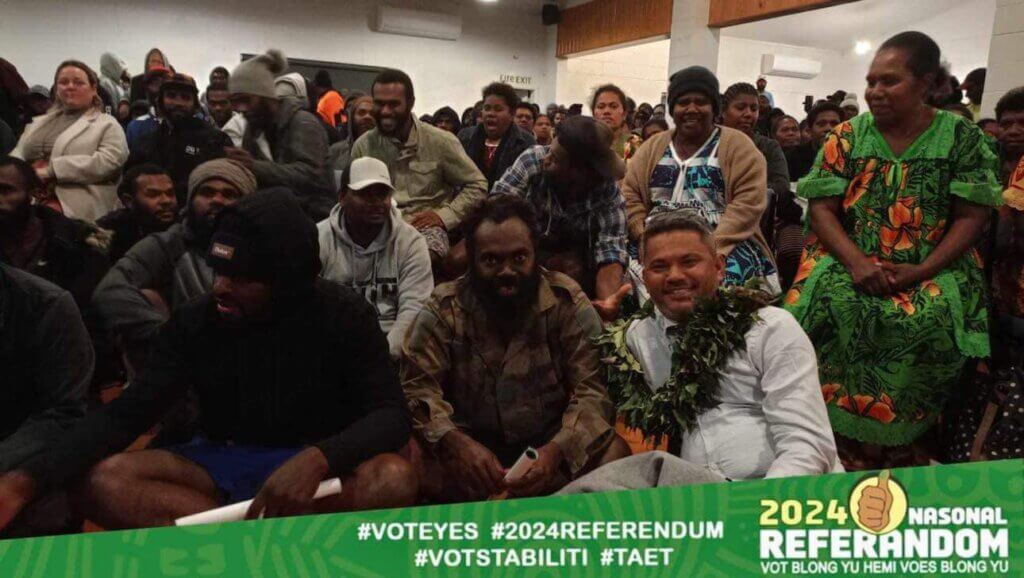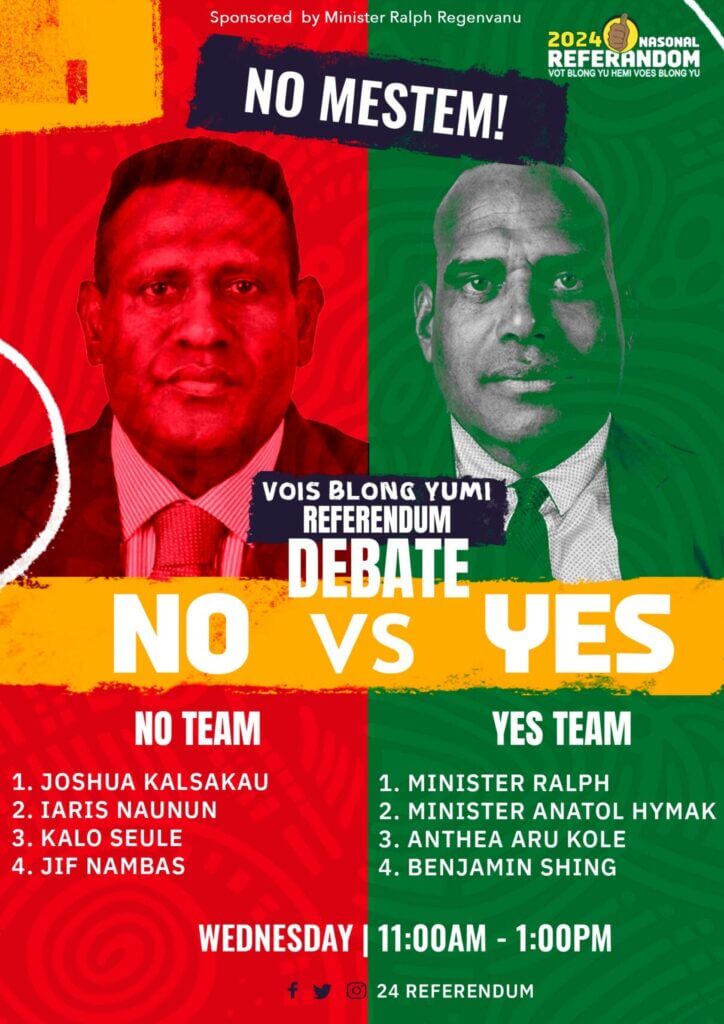By Bruce Tamata.

The eligible voting population in Luganville, Santo, has been urged to vote ‘Yes’ in the upcoming National Referendum so the Government can fulfill its mandate and deliver rightful services to the people instead of spending time and money focusing on the number of Members of Parliament (MPs) in bids to remain in power and maintain political stability.
This was conveyed when members of the distinguished group tasked with raising awareness about the upcoming National Referendum recently launched their campaign at the Luganville Unity Park.
The Referendum, set for 29 May 2024, holds significant importance in Vanuatu’s democratic journey since gaining independence in 1980.
Key speakers at the event included Deputy Prime Minister (DPM) and Foreign Affairs Minister Matai Seremaiah, Johnny Koanapo, Minister of Internal Affairs, the chairman of the Vanuatu Electoral Office, former Prime Minister (PM) Joe Natuman, Director General (DG) of Internal Affairs, and representatives from the State Law Office (SLO).
Minister Koanapo, responsible for the Electoral Commission, said the constitutional amendments are part of an ongoing political reform journey initiated since 2011.
Addressing the prolonged period of political instability spanning over a decade, the proposed amendment to Article 17 of the Constitution was endorsed by the parliament in late 2023 with the support of 51 MPs, following extensive consultations.
Minister Koanapo stressed over a decade of concerted efforts by previous administrations to formulate political reforms aimed at stabilising the country’s political landscape. This included studying the implementation of a Political Party Integrity Bill in regional countries to achieve stability.
Although the Political Party Bill was drafted in 2016 during by Mr. Natuman’s tenure as PM, it failed to secure majority approval despite escalating instability since 1995.
In response to the bill’s rejection, the Constitutional Review Committee (CRC) was formed in June 2016 to identify loopholes contributing to instability. The CRC received submissions from various key institutions such as the Youth Council, Vanuatu Chamber of Commerce and Industry (VCCI), Women Affairs, and the Law Society.
By October 2016, the committee presented its report outlining primary objectives to regulate political parties and elected members to safeguard political stability and leader integrity.
Vanuatu had experienced significant political instability, following the Snap Election (SE) in 2022, as there was a risk of having four Prime Ministers within less than two years.
This situation could have occurred if the Head of State had decided to dissolve Parliament, in response to political turmoil that emerged two weeks after MP Charlot Salwai was elected as PM in late 2023.
Mr. Salwai succeeded MP Sato Kilman, who held the position for only one month after removing Ishmael Kalsakau from office. Kalsakau had been PM for a few months following the SE.
This prompted the 13th Legislature’s Government of National Unity to prioritise political reform to ensure stability and address citizen needs.
Minister Koanapo assured Luganville citizens that the referendum would not impact individual citizens’ fundamental rights under Article 5 of the Constitution but would impose restrictions on elected MPs as outlined in Article 17.
Minister Seremaiah, an MP for Luganville, shared his eight years of experience in Parliament, noting the political upheavals that have led to instability.
He strongly believes this instability has greatly affected the government’s performance.
He recounted experiences serving under MP Kalsakau as PM, where they were often summoned by the then PM twice a day to track numbers.
Consequently, work was hindered as the focus was solely on maintaining support rather than governing effectively.
DPM Seremaiah further remarked that, in his observation, motions of no confidence against Prime Ministers are not based on performance but on the belief among MPs that they should all become ministers.
He urged Luganville residents to vote ‘Yes’ in the referendum to enable the government to fulfill its mandate and provide due services to the people.


